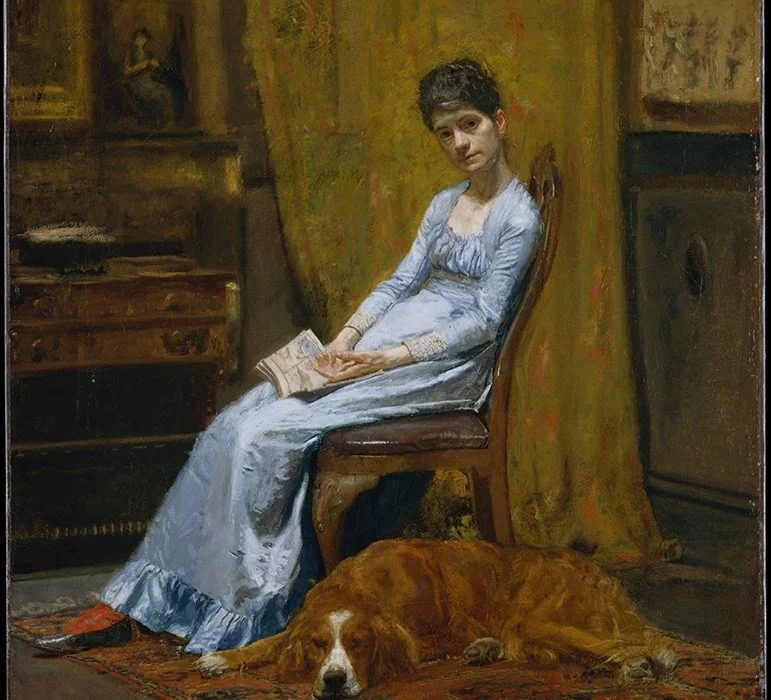Relationships • Parenting
A Test to Measure How Good Your Father Was
It’s a hugely special and propitious moment, widely celebrated in the heavens (if we believe in such places), when a heterosexual woman finds herself in a position to say to a man, perhaps on an early dinner date: ‘I like my father very much. We have a close and supportive relationship. He’s sweet and has always been there for me.’

Though we might point to similar advantages in the case of other genders and orientations, this constellation can be worthy of its own particular consideration – not least because what is at stake isn’t just a woman’s bond with the father himself, but with men across her emotional life. A woman wouldn’t – through such a statement – simply be saying that she got on with her dad; she’d be hinting at an above average chance of succeeding at the challenges of adult love.
A good father may not be able to spare his daughter every kind of suffering; he will, nevertheless, offer her some of the following bounty.
He will set a baseline for acceptable treatment. He will define, in his daughter’s mind, what a good man can be. He will equate normality with kindness. Later on, when she meets a sweet-hearted, welcoming, sane suitor, she won’t hold any of his goodness against him. She won’t be tempted to blame him for his interest in her. She won’t think there is something wrong with him because he isn’t cold and doesn’t want to bully her. And likewise, when she meets men who are busy or off-hand, cruel or constantly furious, she won’t feel that she is coming ‘home’, or that there is an inherent rightness to her feelings of danger, invisibility and submission. She won’t confuse brusqueness with intelligence, or callousness with strength. She won’t have the slightest proclivity to being mesmerised by unavailability, or to try out being cruel herself to erase memories of her early victimhood. There will be nothing glamorous whatsoever for her in nastiness. There won’t be any hidden appeal in insensitivity. She will simply be very puzzled that brutes exist and immediately wonder why she might have strayed into their company.
A good father will have known how to be ordinary. He won’t have used the advantages of age or power or knowledge to impress and grandstand in front of his girl. He will have shown himself to be human, with everything implied by the word: sometimes silly, sometimes ignorant, sometimes sad or confused – not a remote colossus or all-knowing seer. He will have been around often enough to cement an impression of his humdrum yet precious existence. He won’t have made his appearances feel like special occasions. He will have allowed his daughter to take him for granted, week in and week out – so that later on, she wouldn’t have to confuse love with pining, loss or absence. He will have created in his daughter a readiness to accept the limitations and strictures of daily life. She won’t be tempted to dream of gods, faraway princes and remote heroes as alternatives to reality, because she will have known the deeper joys of someone who was present, modest and at peace with himself.
A good father will, without any need for ideological slogans, have shown his daughter what equality feels like. He will have taught her about the dignity of all genders by asking for her opinions on how to fix a bicycle tire and listening to her remarks about the money supply in her economics paper. He won’t have given her any reason to try to persuade a man who didn’t fully believe in her. She won’t have had to grow to be a people pleaser because she pleased one person who truly mattered.
A good father won’t have told her she was more special than she was. He won’t have needed her to be his golden child to make up for a deficiency or sense of invisibility in himself. He won’t have needed her in order to counterbalance his own chaos or childishness. A good father won’t have asked her to be any braver or stronger than she wanted to be. He won’t have used her as a target on which to play out his unresolved relationship to his vulnerability. He won’t have been threatened by her interest in either teddy bear picnics or rock climbing, fairy outfits or triathlons. He will have allowed her the privilege of developing at her own pace, according to her inclinations, of never needing to be mature for her years, of being fully a child in her childhood.
A good father will have walked a hugely careful line around appearance. He will have made his daughter feel that he had noticed her and endowed her with a calm, unflustered sense of her power. He will have spared her any aspiration to charm a random multitude to compensate for the injury of having been ignored by one person in particular. At the same time, a good father will always have respected her privacy; he won’t have called her his special little princess, told her to keep secrets or dropped hints about his unhappiness with mummy. He won’t have given her any sense that he might forget about boundaries, burdening her with an unfair need to police them herself by toning down her exuberance or her charm. He will have allowed her to enjoy her full adult sexuality without fear.
With the help of such a list, some of the toll of poor fathering comes more clearly into view. Fathers who can’t resist ensuring they are outsize heroes. Fathers whose hugs are too tight. Fathers whose attentions are forever elsewhere – with work, a sibling or military history – so that their daughters must ask themselves implicitly throughout their lives: ‘What might be wrong with me? Why can’t I be good enough?’ Fathers who will one day be the cause of an entirely unnecessary bill being paid to a plastic surgeon. Fathers who set up an equation between love and suffering, love and unkindness, love and absence.
Good fathers lead to daughters who won’t need to plead or beg, who get no pleasure from being ignored, who are not overly preoccupied with their appearance or status, who never refuse love nor randomly blow up tender relationships for reasons they can barely understand.
Whenever we encounter sickly love, we know that the story did not begin there. And equally, whenever there is tolerance and happiness, an ability to give and to receive affection, we know there will have been crucial antecedents at play. Somewhere offstage, there will be a largely unheralded hero who facilitated a path towards maturity and contentment. Many a man who has found himself loved reliably by a good, steady and sane woman will – unbeknownst to him – have had another older, perhaps now-dead, man to thank for his momentous blessings.

























